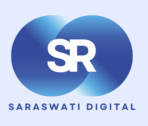
Digital marketing has undergone a dramatic transformation over the past decade, morphing from a peripheral channel to a core pillar of business strategy. As businesses continue to embrace digital transformation, staying abreast of the latest trends in digital marketing is crucial for success. This blog explores the evolution of digital marketing and highlights key trends that are shaping its future.
The Evolution of Digital Marketing
Digital marketing, in its infancy, primarily revolved around email marketing and basic banner ads. The dot-com boom in the late 1990s and early 2000s saw a proliferation of websites, and companies began to recognize the potential of the internet as a marketing tool. Search engine optimization (SEO) and pay-per-click (PPC) advertising became pivotal strategies for driving traffic to websites.
The rise of social media platforms in the mid-2000s introduced a new dynamic to digital marketing. Platforms like Facebook, Twitter, and LinkedIn allowed businesses to engage directly with consumers, creating opportunities for two-way communication and community building. The launch of the iPhone in 2007 further revolutionized digital marketing by putting the internet in consumers’ pockets, leading to the development of mobile marketing strategies.
Current Landscape of Digital Marketing
Today, digital marketing is a complex ecosystem comprising various channels, tools, and techniques. Some of the key components include:
1. Content Marketing: Creating valuable, relevant content to attract and engage a target audience. This can include blogs, videos, infographics, and podcasts.
2. Social Media Marketing: Leveraging social media platforms to promote products and services, engage with customers, and build brand loyalty.
3. Email Marketing: Sending targeted emails to nurture leads, build relationships, and drive conversions.
4. SEO and SEM: Optimizing website content for search engines to improve organic rankings (SEO) and using paid search ads (SEM) to increase visibility.
5. Influencer Marketing: Partnering with influencers to reach their audience and build credibility through trusted voices.
6. Affiliate Marketing: Rewarding affiliates for driving traffic or sales to your website through their marketing efforts.
Emerging Trends in Digital Marketing
As technology advances and consumer behavior evolves, digital marketing continues to adapt. Here are some of the most significant trends shaping the future of digital marketing:
1. Artificial Intelligence (AI) and Machine Learning
AI is revolutionizing digital marketing by providing insights into customer behavior, optimizing ad campaigns, and enhancing personalization. Machine learning algorithms analyze vast amounts of data to predict trends, automate tasks, and deliver tailored content to users. Chatbots, powered by AI, offer real-time customer support, improving user experience and increasing engagement.
2. Voice Search Optimization
With the proliferation of smart speakers and voice assistants like Alexa, Siri, and Google Assistant, voice search is becoming increasingly popular. Marketers need to optimize their content for voice search by focusing on natural language, long-tail keywords, and conversational queries. Voice search optimization not only improves search rankings but also enhances user experience by providing quick, relevant answers.
3. Video Marketing
Video content continues to dominate digital marketing, with platforms like YouTube, TikTok, and Instagram Reels capturing massive audiences. Video marketing is highly effective for storytelling, product demonstrations, and customer testimonials. Live streaming, in particular, has gained traction, allowing brands to interact with their audience in real time and create authentic connections.
4. Personalization and Hyper-Personalization
Consumers expect personalized experiences, and marketers are leveraging data to deliver tailored content, recommendations, and offers. Hyper-personalization takes this a step further by using AI and real-time data to create highly individualized experiences. Personalized email campaigns, dynamic website content, and targeted ads are examples of how businesses can meet the growing demand for personalization.
5. Augmented Reality (AR) and Virtual Reality (VR)
AR and VR are transforming the way consumers interact with brands. AR allows customers to visualize products in their real-world environment, enhancing the online shopping experience. VR creates immersive brand experiences, enabling consumers to engage with products in a virtual space. These technologies offer innovative ways to showcase products, drive engagement, and boost conversions.
6. Social Commerce
Social media platforms are increasingly integrating e-commerce features, allowing users to shop directly within the app. Social commerce streamlines the purchasing process, reducing friction and improving conversion rates. Platforms like Instagram, Facebook, and Pinterest offer shopping features such as shoppable posts, in-app checkout, and product tags, making it easier for brands to reach and convert their audience.
7. Influencer Marketing Evolution
Influencer marketing is evolving from macro-influencers to micro and nano-influencers. These smaller influencers often have more engaged, niche audiences, and their endorsements can be more authentic and cost-effective. Brands are also exploring long-term partnerships with influencers to build deeper relationships and create more impactful campaigns.
8. Data Privacy and Ethical Marketing
With increasing concerns over data privacy, businesses must prioritize transparent and ethical marketing practices. Regulations like GDPR and CCPA require companies to be more cautious about data collection and usage. Marketers need to build trust with their audience by being transparent about data practices, obtaining explicit consent, and providing value in exchange for data.
The Future of Digital Marketing
The future of digital marketing lies in its ability to adapt to new technologies and changing consumer preferences. Here are a few predictions for the future:
1. Increased Automation: Automation will play a larger role in digital marketing, from chatbots handling customer inquiries to AI-driven content creation. Automation will help marketers save time, reduce costs, and deliver more personalized experiences.
2. Enhanced Customer Experience: As competition intensifies, providing an exceptional customer experience will be a key differentiator. Marketers will focus on creating seamless, omnichannel experiences that cater to individual needs and preferences.
3. Sustainability and Social Responsibility: Consumers are increasingly concerned about sustainability and social issues. Brands that demonstrate a commitment to these values through their marketing efforts will resonate more with consumers and build stronger brand loyalty.
4. Integration of Physical and Digital Worlds: The lines between online and offline experiences will continue to blur. Technologies like AR, VR, and IoT (Internet of Things) will create more integrated, immersive experiences that bridge the gap between the physical and digital worlds.
Conclusion
Digital marketing is an ever-evolving landscape, driven by technological advancements and changing consumer behavior. By staying informed about the latest trends and embracing innovation, businesses can effectively navigate this dynamic environment and achieve sustainable growth. As we move forward, the key to success in digital marketing will be the ability to adapt, personalize, and create meaningful connections with consumers.
—
